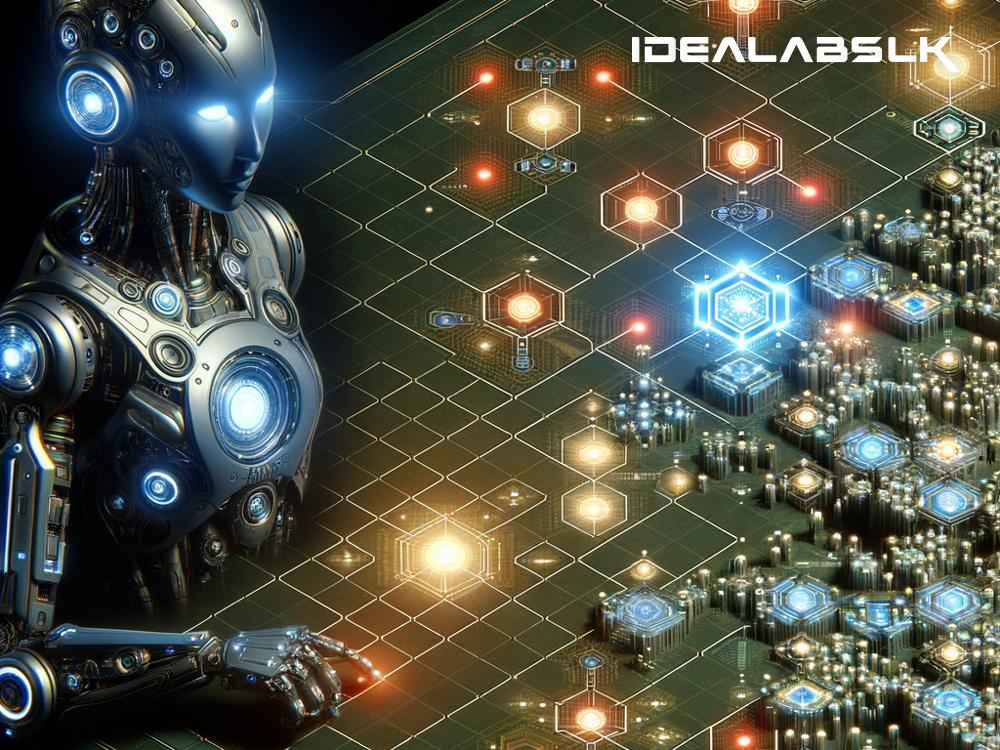How AI Will Make Strategy Games Smarter in 2025
The Future Is Smart
The world of strategy games is about to get a whole lot smarter, and it's all thanks to Artificial Intelligence (AI). Yes, AI, that clever technology that powers your virtual assistants and grants self-driving cars their "brains," is setting its sights on the realm of video games, promising to revolutionize how we play and design strategy games by 2025.
AI: Changing The Game
Traditionally, strategy games, whether they're about building empires, managing resources, or commanding armies, rely on programmed behaviors to challenge players. The NPCs (non-player characters) and game environments follow predefined rules, making the gaming experience predictable over time.
However, with the integration of AI, these games are about to evolve, becoming more unpredictable, dynamic, and smart. In simple terms, strategy games will start learning from you, adapting and providing challenges tailored specifically to your style of play. This means no two game experiences will be alike, making each playthrough fresh and exciting.
Tailor-Made Challenges
Imagine playing a game where the AI observes how you manage your resources, make decisions, and strategize your moves. It then uses this information to create challenges that are perfectly suited to push you to your limits.
For example, if you're particularly good at defending your base, the game might start launching more sophisticated, unexpected attacks, forcing you to adapt and improve. This kind of intelligent difficulty adjustment will keep strategy games engaging and ensure players are constantly learning and evolving.
Smarter NPCs
Non-player characters are also getting a brain boost thanks to AI. By 2025, expect to see NPCs that can strategize, negotiate, and make decisions just like a human player would. They'll form alliances, betray each other, and maybe even try to manipulate you into doing their bidding.
This advancement in NPC intelligence will add depth to games, making the worlds feel more alive and the gameplay more immersive. Imagine interacting with characters that respond dynamically to your actions, remember your deeds, and adjust their strategies to counter yours.
More Realistic Simulations
AI will also enable strategy games to simulate complex systems more realistically. We're talking about economies, ecosystems, and societies that behave like their real-world counterparts. These simulations will account for endless variables, creating a domino effect where every action has multiple consequences.
This level of complexity will challenge players to think several steps ahead, considering long-term impacts and unforeseen outcomes. It'll be like playing chess against a grandmaster, where every move needs to be calculated and precise.
Creative Game Design
On the flip side, AI isn't just making games smarter; it's also empowering game designers. With AI tools, creators can generate vast, intricate game worlds filled with unique challenges and stories. These tools can automate the tedious aspects of game design, allowing creators to focus on crafting engaging experiences.
Moreover, AI can offer insights into how players interact with the game, helping developers tweak and improve their designs in real-time. This feedback loop will accelerate the evolution of strategy games, ensuring they remain compelling and fun.
The Human Touch
While AI is set to revolutionize strategy games by making them smarter, there's one thing it can't replace: the human element. Strategy games are about outwitting opponents, making unpredictable moves, and, most importantly, having fun. AI will enhance these aspects, not take them away.
Players will always find ways to outsmart the AI, coming up with creative strategies that no computer could predict. And that's the beauty of it. AI will raise the bar, challenging us to think harder, strategize better, and ultimately become smarter players.
Conclusion: A Smarter Future
By 2025, the strategy games we love will be transformed by AI. These games will challenge us in new ways, offering tailor-made experiences that adapt to our playstyles. They'll be more immersive, with NPCs that behave like real opponents, and game worlds that are rich, dynamic, and endlessly complex.
But amidst this AI-driven evolution, the heart of strategy gaming—the thrill of competition, the joy of victory, and the lessons learned in defeat—will remain unchanged. If anything, AI will make these experiences even more profound, reminding us that in the game of strategy, whether against human or machine, it's our wits that make all the difference.
The future of strategy games is smart, and it's a future we can all look forward to exploring.

